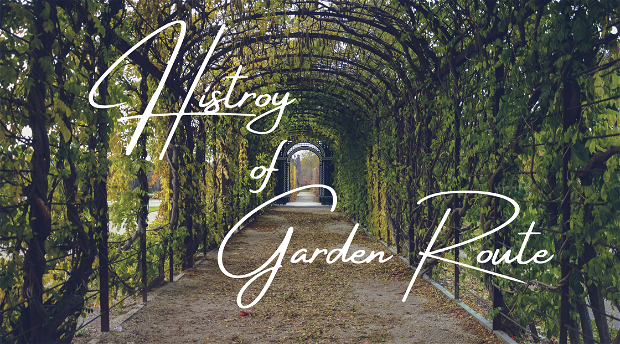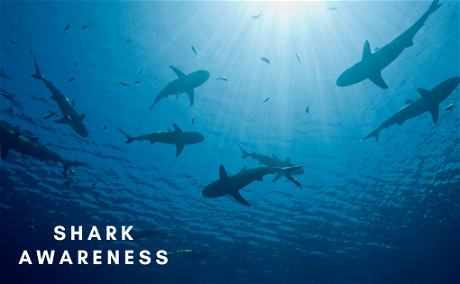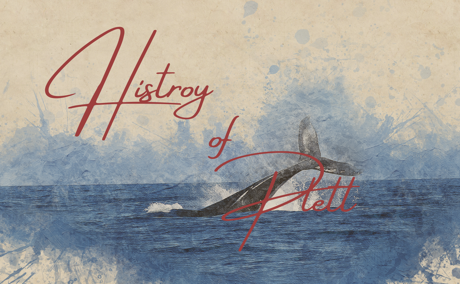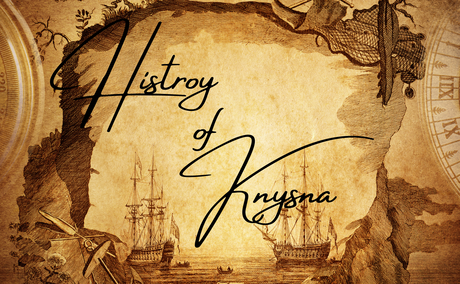Shark Awareness is a universal goal to understand one of the most fascinating sea creatures of this world. Sharks (like fish) date so far back in history that scientists refer to them as “living fossils”. Sharks have been on the earth for 420 million years, and have survived five mass extinctions.
The History of The Garden Route.

Stretching 300km from Mossel Bay to the Storms River, the Garden Route is the most popular tourist attraction for all travellers and holiday seekers. It derives its name for the lush, shady evergreen forests, deep gorges and wide sandy beaches, stunning lakes and lagoons, as well as a wide variety of birds, sea mammals and wildlife.
DID YOU KNOW… George is nicknamed ‘The Gateway to The Garden Route’
Stone Age tools had been discovered along the stretch, including artefacts in its many caverns. It came as no surprise when the Age of Discovery came across this paradise to find an alternate route to the East, and decided that the Garden Route was worth settling down and making a home for people who wished to have a new start in life.
Bartolomeu Dias first discovered the Garden Route in 1488, and when the Dutch East India Company established itself in the Cape in 1652, it wouldn’t take long for people to venture out and explore other areas for items they could trade with. The Dutch were skilled in hydraulic engineering, and were able to devise a system of furrows to direct water from rivers and make them easier for all to have access to.
DID YOU KNOW…
The French Huguenots were Protestants who fled France after King Louis VIX signed the ‘Edict of Fontainebleau’ in 1685, where France’s only religious practice would be Catholicism. The violence was great, and any hope of survival lay outside the French borders.
Although allotted a place in Franschhoek, the French Huguenots would also call the many settlements along the Garden Route their home. When Great Britain went to war with France in 1793, both countries tried to capture the Cape so as to control the important sea route to the East. When Britain occupied the Cape in 1795, the role of the Dutch East India Company came to an end.
After the Napoleonic Wars, the Cape and all its surrounding areas became a vital base for Britain and by 1869, the Cape’s economy was amalgamated with that of Britain. Merino Sheep was introduced, and intensive Sheep Farming was initiated in order to supply wool to the British textile mills.
Unfortunately, it would take no more than 200 hundred years for people to decimate the wild game and vegetation. As such, National Parks were created to preserve nature and her animals that were nearing extinction.
WHAT TO DO ALONG THE GARDEN ROUTE
To be more precise, the question should rather be, “What can I not do along the Garden Route?” Adventurers will be treated like royalty along the many activities the Garden Route has to offer.
Below is only a fraction of what The Garden Route has to offer:
- Abseiling
- Bungee jumping
- Canoeing
- Fishing
- Food & cuisine tasting
- Hiking
- Historical Museums & Buildings
- Horse trails
- Scuba diving
- Wine tasting
- Zip lining
The Garden Route is known throughout the globe as one of South Africa’s most stunning attractions; so much so that it earned its place in the UNESCO Biosphere Reserve.
Looking back on its history, The Garden Route boasts multi-cultural and diverse people; who toiled night and day to create Heaven on earth. It truly is a place worth being on everyone’s’ Bucket List.
Further Reading
Plettenberg Bay is known for its beauty, as well as its rich history; which began during the time when Bartolomeu Dias chartered the bay in 1487, and named it Bahia das Alagoas (‘Bay of the Lagoons’). During the 15th century, Plettenberg Bay was then named Bahia Formosa (‘Beautiful Bay’) by Portuguese navigator and cartographer, Manuel de Mesquita Ptrestrélo (Christopher Columbus married into this famous family of seafarers).
Whether in calm or stormy weather, The Heads has proven itself time and again as the greatest antagonist to ships; be it small fishing boats to great schooners and brigs. No matter what technology mankind may perfect in years to come, nature will always have the upper hand.




Share This Post